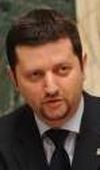WG7: Public Administration Education
WG coordinators:
-
Calin Hintea, Babes-Bolyai University, Department of Public Administration, Cluj-Napoca, Romania, hintea@fspac.ro
Calin Emilian Hintea is a Professor at Babes Bolyai University, Romania and Adjunct Professor at Michigan State University. He teaches Public Management and Strategy courses. Professor Hintea is the Dean of the College of Political, Administrative and Communication Sciences at BBU. He is also a former Secretary of State, Head of Strategy Unit, the Prime Minister's Office (2009-2011) as well as a former Chair of the Public Administration Department at BBU (2004-2012). He is the Senior Editor of the Transylvanian Review of Administrative Sciences (ISI Journal).
-
Roger Hamlin, Michigan State University and Babes-Bolyai University, hamlin@msu.edu

Roger Hamlin is a Professor of Urban Planning directs several projects for the Institute for Public Policy and Social Research (IPPSR) at Michigan State U. (MSU) and is Associate Dean for International Programs at Babes-Bolyai U. He was previously Associate Director of IPPSR, Resident Fellow, and Director of International Programs and was Director of the Urban and Regional Planning Program at MSU for eleven years. He also administered the Community Planning Program at Columbus State University in Georgia.He currently directs projects that build governance capacities at the sub-national level in the US and abroad. Dr. Hamlin earned a bachelor's degree in economics from Hamilton College in New York and a Master's and Ph.D. from the Maxwell School at Syracuse University. He has worked for the Senate and the Office of Planning Services of New York and has lived and worked in South America, the Caribbean, Asia and Europe. He has authored several books on public-private partnerships. Professor Hamlin has earned the White House Achievement Award, The Nelson Jack Edwards Award and the Illinois Foundation Award. He has earned national awards from the American Planning Association and the American Institute of Certified Planners. He was a CIC Academic Leadership Fellow.
Main Focus and Working Aims:
The aim of the Working Group is Public Administration Education in its broadest sense (curriculum development, curriculum technology, e-learning, teaching technology, best practices, research on education, quality assurance, modern management of public administration programmes, international accreditation, etc.).
The Working Group also focuses on those interested in the management of public administration education because they are in charge of public administration programmes, manage public administration departments or like to share their experiences with public administration teaching.
Over the years, the Working Group has hosted a variety of presentations and debates concerning higher education in the field of public administration, as well as presentations by relevant stakeholders from specialised international organisations such as EGPA, EAPAA, NASPAA, and ASPA.
This Working Group is striving to offer a comparative view of the way in which higher education in the field of public administration is perceived and implemented at international level and to offer best practices for universities and countries which are searching to improve their current situation.
Specific goals:
For the next NISPAcee conference, the coordinators propose a special focus on strategic issues related to the development of public administration programmes. We think that the group should analyse as much as possible the big issues that PA education will face in the future. We are looking to identify and discuss things that will influence Public Administration schools in the long run and in a structural manner. At the moment, higher education in public administration faces very diverse challenges regarding the profile of the students, internationalisation, digitalisation, relations with the community and the market etc. We are trying to identify more clearly these challenges and to offer possible solutions.
The Working Group intends to publish, in the long run, an edited book on this subject. The volume might include analyses of these challenges as they apply to various geographic locations as well as transnational analyses on this subject.
Guidelines for contributors:
The working group is interested in papers connected broadly to higher education in public administration (topics such as teaching, research, curriculum development, internationalisation, national and international accreditation, programme management, etc.). We are interested in papers employing both qualitative and quantitative methods. The Group encourages a comparative approach at international level in dealing with the aforementioned topics as well as the development of practical solutions/suggestions based on the universities’ own experiences which can also be transferred to other organisations.
Papers can address the field of higher education understood in a broad fashion – this means that authors can address both traditional forms/programmes in higher education as well as training for civil servants, online learning, open courses, etc.).



